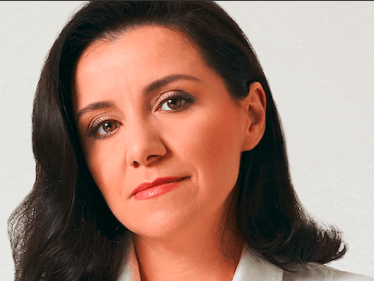Merope - Schedule, Program & Tickets
Merope
Dramma per musica in three acts (1732)
Music by Riccardo Broschi
Libretto by Apostolo Zeno
Concert performance in Italian
Convicted Forced Wedding: In order to come to the kingdom of his brother Cresfonte, Polifonte has the plan to have this and his descendants murdered by Anassandro. Anassandro, before changing sides, was the confidant of Cresfonte's wife, Queen Merope, and her sons' caretaker. The murder succeeds, Merope is spared, but must renounce the kingdom. Her son Epitide has also escaped the disaster, as he was at the time at the court of the King of Aetolia. The tyrannical Polifonte falls in love with Merope and wants to persuade her to marry. She asks for a ten-year deadline, secretly hoping that either the traitor will be found or her adult son will return home. Epitide manages to go unnoticed to his mother on the very day on which the deadline ends, Polyptee to deprive and recover his due Kingdom and to prevent the forced marriage of his mother. The composer Riccardo Broschi wrote many of his operatic roles for the famous castrato Farinelli. No wonder, because Farinelli, whose real name was Carlo Broschi, was his brother. Riccardo Broschi, trained at the Santa Maria di Loreto Conservatory, was first mentioned in 1725 as a composer of church music. He was probably 27 years old at the time, as a document in which Broschi testifies to the wedding of his sister Dorotea. In the same year he performed his first and only comic opera at the Teatro dei Fiorentini, then the oldest theater in Naples. Three years later L'isola d'Alcina, his first opera seria, followed in Rome. This production joins a successful creative period in northern Italy, where he edited his Alcina edited in Parma and wrote operas for the carnival season in Venice and Turin. In Turin celebrated in 1732 his most famous opera Merope with his brother Farinelli premiered in one of the main roles. The artistic director of the Innsbruck Festival of Early Music, Alessandro De Marchi, brings this fulminant baroque opera back to the stage in 2019, which is second to none to other operas of the period.
Subject to change.
Music by Riccardo Broschi
Libretto by Apostolo Zeno
Concert performance in Italian
Convicted Forced Wedding: In order to come to the kingdom of his brother Cresfonte, Polifonte has the plan to have this and his descendants murdered by Anassandro. Anassandro, before changing sides, was the confidant of Cresfonte's wife, Queen Merope, and her sons' caretaker. The murder succeeds, Merope is spared, but must renounce the kingdom. Her son Epitide has also escaped the disaster, as he was at the time at the court of the King of Aetolia. The tyrannical Polifonte falls in love with Merope and wants to persuade her to marry. She asks for a ten-year deadline, secretly hoping that either the traitor will be found or her adult son will return home. Epitide manages to go unnoticed to his mother on the very day on which the deadline ends, Polyptee to deprive and recover his due Kingdom and to prevent the forced marriage of his mother. The composer Riccardo Broschi wrote many of his operatic roles for the famous castrato Farinelli. No wonder, because Farinelli, whose real name was Carlo Broschi, was his brother. Riccardo Broschi, trained at the Santa Maria di Loreto Conservatory, was first mentioned in 1725 as a composer of church music. He was probably 27 years old at the time, as a document in which Broschi testifies to the wedding of his sister Dorotea. In the same year he performed his first and only comic opera at the Teatro dei Fiorentini, then the oldest theater in Naples. Three years later L'isola d'Alcina, his first opera seria, followed in Rome. This production joins a successful creative period in northern Italy, where he edited his Alcina edited in Parma and wrote operas for the carnival season in Venice and Turin. In Turin celebrated in 1732 his most famous opera Merope with his brother Farinelli premiered in one of the main roles. The artistic director of the Innsbruck Festival of Early Music, Alessandro De Marchi, brings this fulminant baroque opera back to the stage in 2019, which is second to none to other operas of the period.
Subject to change.
There are no products matching the selection.






